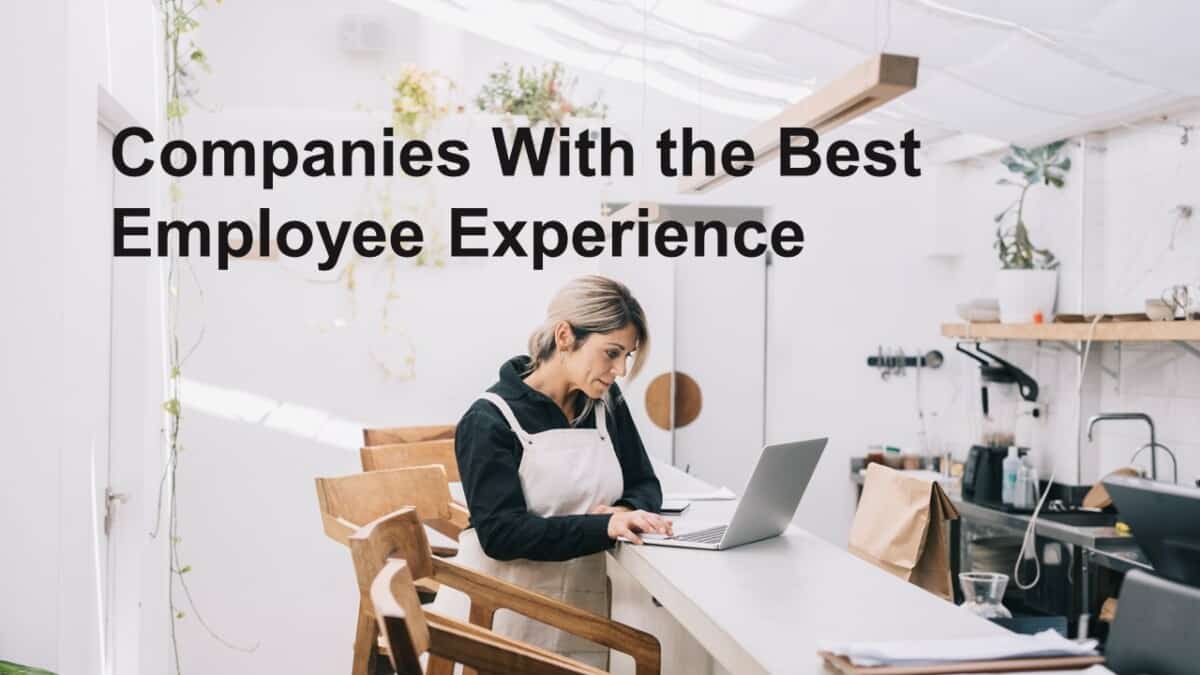Share:

According to a recent Harvard Business Review Analytic Services survey, 55% of executives surveyed said they believe it is just not possible to provide a great customer experience without providing a great employee experience. In fact, the link between the two is so strong, many are declaring employee experience is “the new customer experience.”
The push to provide better and better customer experiences has many companies investing in strategies that improve the employee experience, but they still struggle to identify effective strategies that will yield long-term results.
What we are learning is that to provide the kind of employee experience that leads to a great customer experience, we have to go beyond perks.
According to Michael Bush, CEO of Great Place to Work, we can look at some of the top-ranked best places to work, all of which are highly successful organizations that are known for providing exceptional customer experiences, to see the benefits of going beyond perks in how we create employee experience in our organizations.
Bush says, “The best companies go beyond perks to create aspirational workplaces. They foster a culture of inclusion, purpose, caring, and empathy. Then they dig deeper and personalize those values in creative and inspiring ways, genuinely listening to their workforce. They meet employees where they are—sitting at a desk or standing in a checkout line—and support them outside the office as much as they do inside.”
Companies with the best employee experience offer their employees a caring culture that supports their growth, a sense of purpose, and an inclusive and empathetic work environment. Top-ranked companies that offer some of the best employee experiences include Cisco Systems, NVIDIA, Hilton, and David Weekley Homes.
In this article, we’ll explore how these highly successful companies provide exceptional employee experiences.


What Is Employee Experience?
Gallup defines employee experience as “the journey an employee takes with your organization.” This journey includes all the interactions that happen during the employee lifecycle, as well as the experiences that involve an employee’s role, work environment, workplace culture, leaders, and how their leaders demonstrate a commitment to their growth, success, and well-being.
Employee experience encompasses how an employee feels during all their interactions with their employer throughout their professional relationship with them.
This includes (but is not limited to) the employee’s first encounter with the employer (through familiarity with the employer’s reputation and the experience of applying for the job), the first time the employee meets the employer, the employee’s experience of their work environment and encounters with co-workers, the workplace culture, the exit interview process, and any interactions the employee has with the employer after the employee leaves the organization.
When an organization provides a positive employee experience, they see improvements in customer satisfaction, greater innovation, and 25% higher profits than organizations that do not provide a positive employee experience.
Companies That Get Employee Experience Right
The following companies have been ranked as some of the best companies to work for because of the exceptional employee experience each provides.
These companies offer their employees a caring culture that supports their growth, a sense of purpose that gives their work meaning, and an inclusive and empathetic work environment where they can thrive.
David Weekley Homes
Houston-based David Weekley Homes is the largest privately held, single-family homebuilder in the US and has been on Fortune magazine’s list of “100 Best Companies to Work For” 16 times. It provides a people-focused culture that values employees and a supportive work environment where leadership is committed to employee development. The company also recognizes team members’ achievements and successes to help them see the greater impact of their work, which can help employees see a deeper purpose in their roles:
The company scores high marks for employee experience for several of its policies:
- Sabbaticals and grants of $2,000 grants are available for full-time employees with 10 continuous years of service.
- A portion of the company’s profits is shared with employees, which they can choose to spend or invest.
- The CEO personally emails team members on their birthdays and work anniversaries.
- Employees share best practices and the organization recognizes achievements and successes at quarterly Excellence Meetings.
I recently sat down with Robert Hefner, Vice President of Human Resources at David Weekley Homes, to discuss the importance of recognizing and celebrating organizational and employee success and the positive effects it creates for company culture.

Cisco Systems
Cisco is a multinational digital communications technology conglomerate corporation headquartered in San Jose, California. Cisco provides its employees with a wide range of training, development, and career pathing opportunities designed to help employees at all levels reach their full potential.
The company has been recognized around the world as a leader in employee experience with numerous awards and accolades, including a number one ranking for several years in a row on Fortune’s 100 Best Companies to Work For list.
Cisco offers a unique open-ended, self-directed learning experience for its employees that helps employees “align skills with strengths and reinvent their careers within Cisco.” They also offer leadership development and coaching programs, a robust onboarding experience, and other programs like Cisco Illuminate and Career Launchpad that are focused on employee growth.


Hilton
Hilton is a multinational hospitality company that manages and franchises a wide range of hotels and resorts. The company scores high rankings, including a number two ranking on Fortune 100 Best Companies to Work For® 2022. It’s known for having a culture that values the well-being of employees and supports an inclusive and empathetic work environment.
Hilton has created what it calls “a fully human experience at work” for its employees by focusing on improving wellness, professional growth, purpose, and inclusion, with the company committing itself to global gender parity and 25% ethnic diversity in corporate leadership by the year 2027.
Hilton has made supporting the mental health of its employees a key priority. It offers free counseling to staff and access to an internal hub with mental health resources that aim to normalize mental health conversations. “Hilton Flex” offers employees more flexibility over when they work, which department they work in, and how often they’re paid.
NVIDIA is a tech company headquartered in Santa Clara, California, that designs and manufactures computer graphics cards for desktop and mobile systems in the areas of driverless cars and video games. An analysis by CultureX, which created The Culture 500 with the MIT Sloan Management Review and Glassdoor, ranks NVIDIA on these values:
Agility: Nvidia is in the 100th percentile across the Culture 500 sample
Collaboration: Nvidia is in the 85th percentile across the Culture 500 sample
Innovation: Nvidia is in the 100th percentile across the Culture 500 sample
Integrity: Nvidia is in the 99th percentile across the Culture 500 sample
Performance: Nvidia is in the 99th percentile across the Culture 500 sample
For years now, this company has been ranked as one of the best places to work by its employees; 95% of employees at NVIDIA say it is a great place to work compared to 57% of employees at a typical U.S.-based company.
On the subject of corporate social responsibility, NVIDIA has taken a people-focused approach, declaring: “We make people our first priority, empowered by technology that makes a positive impact on humanity and the world around us.”Employees have described the work they do at NVIDIA as “challenging and meaningful, with great compensation and a democratic culture.”
NVIDIA has made impact through innovation a part of how they measure success, which gives their employees’ work meaning and unites them with purpose, in addition to giving the company a competitive edge, in a highly competitive market.

Matt Tenney has been working to help organizations develop leaders who improve employee engagement and performance since 2012. He is the author of three leadership books, including the groundbreaking, highly acclaimed book Inspire Greatness: How to Motivate Employees with a Simple, Repeatable, Scalable Process.
Matt’s ideas have been featured in major media outlets and his clients include numerous national associations and Fortune 500 companies.
He is often invited to deliver keynote speeches at conferences and leadership meetings, and is known for delivering valuable, actionable insights in a way that is memorable and deeply inspiring.


